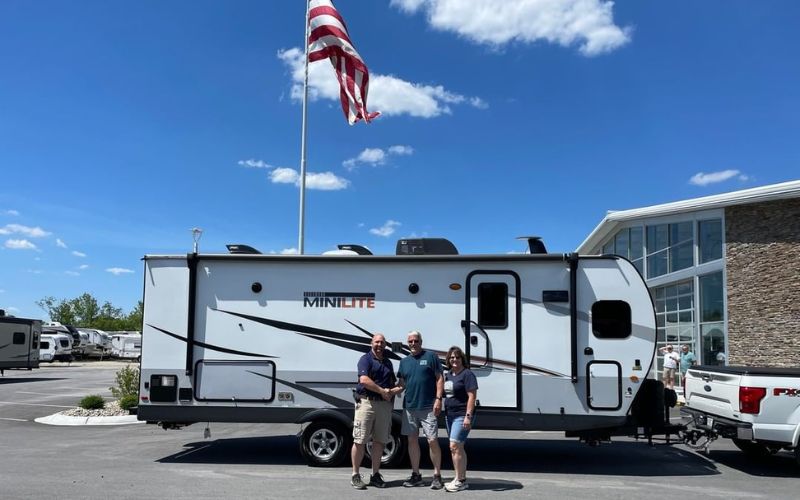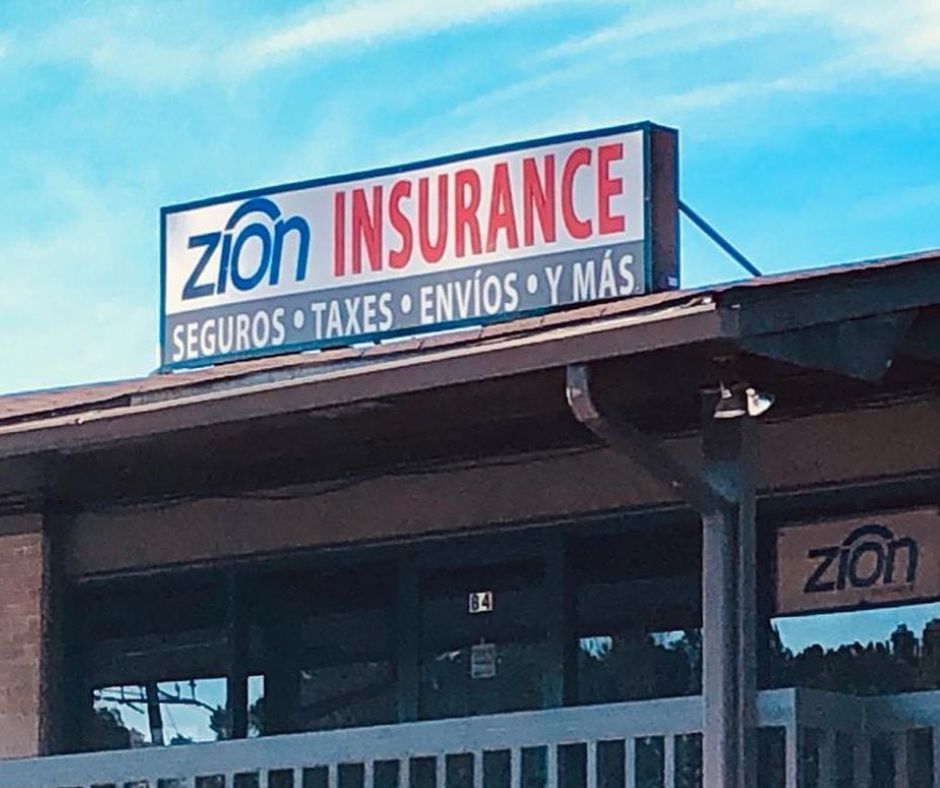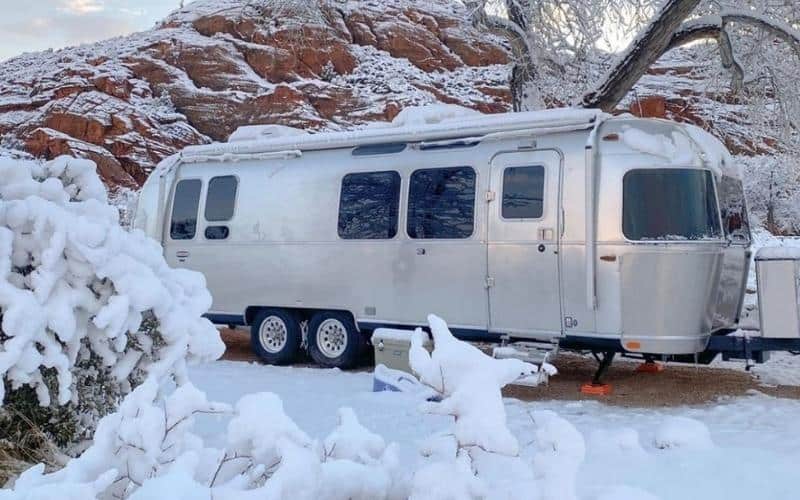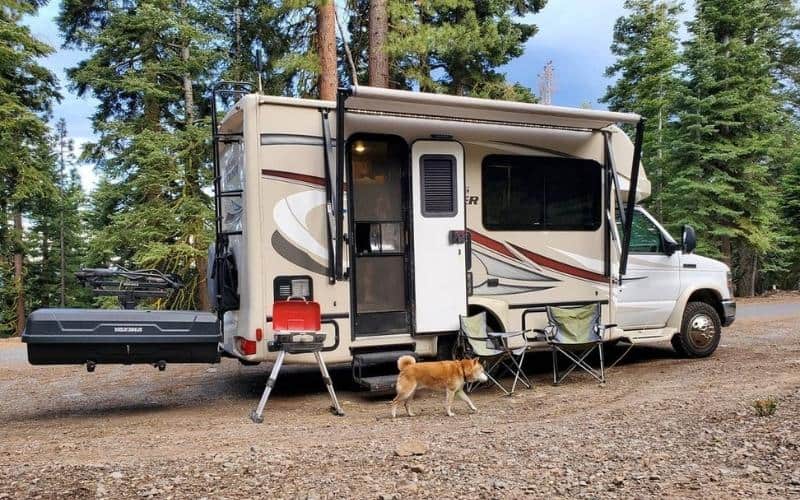Finding health insurance for full-time RVers is one of the more daunting challenges of life on the road.
Full-time jobs with benefits generally provide health insurance to their employees, but, if you are headed full-time on the road, the chances are good that you might need to find health insurance on your own.
In the United States, full-time RVers have health insurance options ranging from Affordable Care Act (ACA) plans to medical sharing plans to short-term insurance plans and more to help you stay covered on the road.
Navigating these plans and their associated costs and limitations can be a daunting task.
That’s why we did some homework for you to put together a list of considerations and potential insurance plans for your full-time road journey.
In this article, we’ll help you understand the questions you should ask yourself to find the best insurance for you, unpack health insurance options for RVers, and help you balance out the relative costs of each.
I’ll also be sharing some of my own personal experiences with health insurance over the road.
My wife and I have lived full-time in an RV for over 5 years and have had affordable health insurance coverage the entire time.
I’ll weave in our full story of why we decided on the health insurance plan we did and how it has worked for us along the way.
Questions To Ask Yourself When Shopping Health Insurance As A Full-Time RVer
The type of health insurance you wind up with will depend on your answers to a few questions:
Are you over 65?
If so, Medicare will be your best option because it is by far the most affordable, accessible, and nationally recognized plan.
You’ll be able to obtain coverage virtually anywhere in the U.S. with Medicare — a must for full-time travelers.
Do you need coverage outside your home state?
The answer to this question will almost certainly be a yes if you plan to be or are a full-time RVer.
The reason this question is important is that many health insurance plans will only provide medical coverage in your home state.
While many of these plans offer emergency coverage out of state — that’ll essentially leave you without coverage outside your home state in all but the most catastrophic of situations.
Generally speaking, full-time RVers should avoid health insurance plans that only cover you at hospitals in your home state.
These plans tend to be cheaper but will cost you more in the long run if you need healthcare out of your home state.
How large a deductible are you comfortable with?
One of the best ways to save money on health insurance is by taking on a higher deductible.
Some of the plans we’ll discuss here allow you to take on a large deductible — sometimes $10,000 or more — to save a large amount on monthly premiums.
The idea here is that because you’re paying for small to medium sized medical expenses out of pocket, you can pay less in premiums and just save the difference yourself.
But the key is that you actually save it.
Because if you don’t plan to save some money back for your own medical expenses, it’s best to go with a lower deductible plan that won’t cost you as much out of pocket.
Are you comfortable outside of the traditional health insurance market?
In this article, we’ll discuss medical sharing plans, short-term health insurance, fixed indemnity plans, and other options outside traditional health insurance.
Each of these options brings its own set of pros and cons that we’ll discuss, but for now it’s important to ask yourself how comfortable you are with alternatives — especially if you’ve been covered by traditional health insurance before.
Do you have pre-existing conditions you need covered?
Pre-existing conditions are a fact of life for many people. While there is still coverage for full-time RVers with pre-existing conditions, it can limit your options to more traditional health insurance coverage.
In my wife and my case, we were generally healthy when we started shopping for RV health insurance.
However, I did have some pre-existing health issues that I was slightly concerned about.
What I found was that many health insurance options will actually take you with pre-existing conditions but they may limit or exclude coverage for those conditions.
In my case, they covered my pre-existing issues up to a generous maximum dollar cap for the first 3 years, but after that they offered full coverage for these issues. That was a win in my book!
How Will Your Domicile State Impact Health Insurance Options?
Your domicile state is simply the state where you legally reside. For many full-time RVers, this will be a state such as Texas, Florida, or South Dakota that you may become a resident of via something like Escapees RV Club.
Health insurance offerings and premiums are specific to the state in which you reside. For that reason, it pays to try to domicile in a more affordable health insurance state.
Florida and South Dakota, for example, are two states that make it easy for RVers to obtain a domicile while also offering more affordable health insurance rates.
That said, some health insurance plans are available at a set price regardless of the state of domicile.
My wife and I — for example — decided on a medical sharing program that is not tied to any one state.
Rather, it’s portable and offers the same great pricing and coverage wherever your wheels may take you.
NOTE: Even though you purchase health insurance based on your domicile state, RVers should still generally shop for health insurance plans that’ll provide regular, non-emergency coverage outside the home state.
How Much Does Health Insurance For Full Time RVers Cost?

Much as we’d love to give you a specific answer on this, there’s really no one-size-fits-all price range for health insurance.
Your premiums will depend on things like what state you live in, if you have pre-existing conditions, size of the deductible you choose, level of health care plan you choose, and much more.
For these reasons, it pays to shop around a great deal when hunting for health insurance to make sure you get the most bang for your buck.
Finally, it also pays to consider how much not having health insurance could cost you.
Unfortunately, some full-time RVers choose to go without health insurance, but this decision could literally cost you tens of thousands of dollars even for basic medical bills.
That’s why it pays to have some sort of health insurance option as an RVer — even if just to cover catastrophic medical situations.
In my personal case, my wife and I found a high deductible policy that provides great coverage once the deductible is met.
By raising our deductible to a high level (around $10,000 for the two of us) we are essentially agreeing to cover small/medium medical issues out of our own pocket in exchange for lower monthly rates.
So our medical sharing plan is in place to help us in the event of a catastrophic medical situation that would otherwise overwhelm us with bills.
We found a health sharing plan at medishare.com that accomplished the above and we pay around $400 per month to cover both my wife and I. We’re both 37 years old and in relatively good health.
Prices do vary heavily with health insurance, but I hope sharing my personal numbers will at least show what’s possible!
7 Health Insurance Options For Full Time RVers

Now that you know the questions to ask yourself, let’s unpack the types of health insurance options for full time RVers out there along with some example companies:
1. Medicare
If you’re over 65, Medicare will nearly always be your best option. Medicare is free or very low cost, covers a variety of procedures, and is accepted nationwide.
Folks on medicare often also take advantage of supplemental policies to help defray certain costs that Medicare may not fully cover. These plans can be quite affordable.
Here are a few examples of companies offering supplemental medicare insurance:
2. Affordable Care Act (ACA) Plans
The Affordable Care Act (aka Obamacare) is still up and running and offers health insurance for RVers as part of an exchange.
In short, this means that health insurance companies that sign up to be part of these exchanges agree to cover a larger set of health issues while also agreeing to cover individuals with pre-existing conditions.
ACA plans also offer subsidies if you qualify based on income. When my wife and I applied for an ACA plan we didn’t qualify for subsidies, making these plans very expensive for us.
Even the high deductible plans were going to cost us over $1,000 per month!!! For reasons like that, we personally chose not to pursue an ACA (Obamacare) plan.
Here are a few important things to note if you pursue ACA plans:
-
If your home state doesn’t have an exchange set up, you’ll need to apply for an ACA plan via the national exchange. You’ll still apply at healthcare.gov no matter what, but this will impact what policies are available to you.
-
Many ACA plans these days only provide non-emergency coverage in your home state. As a full-time RVer, be sure to select a plan that will provide you with nationwide coverage.
-
ACA plans can be expensive if you don’t qualify for a subsidy.
And here are the pros/cons of ACA plans:
Pros | Cons |
Coverage for pre-existing conditions. | Expensive without a subsidy. |
Affordable IF you qualify for enough subsidy. | Many ACA plans only offer non-emergency coverage in your home state. |
Provides a good basic level of coverage that includes regular doctor’s visits, low out of pocket expenses, and guaranteed coverage for important health concerns. | Limited window to enroll, called the open enrollment period, which runs for a limited time at the end of each year. |
The ACA exchange allows you to compare costs and benefits of each plan. |
3. Short-Term Health Insurance
Just as the name implies, these health insurance policies are only designed to provide coverage for a temporary period of time.
These can work okay if you only plan to RV for a set period of time before going back to a job with health insurance benefits. Otherwise, you’ll want to shop for a long-term plan.
Here are a few examples of short-term health insurance plans on the market:
And here are the pros/cons of short-term health insurance:
Pros | Cons |
Generally easier process to obtain insurance. | No coverage for pre-existing conditions |
Relatively affordable. | Not required to cover certain procedures or certain doctors visits, read plan details carefully. |
Wide variety of coverage and deductible options so you can pick the plan that’s best for you. | Not as regulated as traditional insurance. |
Coverage is only offered for a max of 12 months. |
4. Private Health Insurance Via RVerInsurance.com
The agents at rverinsurance.com are RVers themselves, so they get what it means to be full-time on the road.
This site is commonly known as the RVer insurance exchange because its agents are almost exclusively focused on helping people find health insurance while living on the road.
Traditional insurance agents might not understand all the ins and outs of providing coverage in the states you might visit, making the RVer insurance exchange a great place for you to go.
I don’t personally have experience with this exchange, but I can absolutely see how it’s a tremendously valuable resource for RVers.
If you don’t find an affordable ACA plan or would rather get health insurance on the private market, rverinsurance.com is really your one-stop shop for agents that’ll help you navigate the sea of private health insurance options.
Here are the pros/cons of private health insurance:
Pros | Cons |
Generally easier process to obtain insurance than the ACA exchange. | Not required to cover pre-existing conditions. |
Private plans can be cheaper than ACA plans. | Many ACA plans only offer non-emergency coverage in your home state. |
Wide variety of coverage and deductible options so you can pick the plan that’s best for you. | Limited window to enroll, called the open enrollment period, which runs for a limited time at the end of each year. |
Sold by agents who can help you navigate plans and pick the best one for you. | Can be expensive. |
5. Health Sharing Plans
Medical sharing plans aren’t technically insurance, but they function in much the same way.
You pay into a central pot that is then used to help cover medical bills for all members — including you should you ever need it.
Health sharing plans are exempt from the Affordable Care Act (ACA) meaning they can exclude pre-existing conditions, deny coverage, and are exempt from coverage requirements in the ACA. Health sharing plans are generally faith based.
What this all means for you is that, while health sharing programs can be an affordable and workable option for many, you’ll definitely want to read the fine print to fully understand what your program does and does not cover.
Here are some examples of health-sharing programs:
Here are the pros/cons of health-sharing plans:
Pros | Cons |
Much more affordable than traditional health insurance. | Not required to cover pre-existing conditions (though many plans do after a certain period of coverage). |
Works nationwide. | Not required to cover certain procedures or certain doctors visits, read plan details carefully. |
Encourages healthy living among members and offers discounted premiums for healthy lifestyles. | Not technically insurance, so it doesn’t have the same legal coverage requirements that others do. |
Allows you to get cash discounts at doctors office while still reimbursing your costs. | Not required to maintain coverage for you, can drop or deny coverage at any time with notice. |
My personal experience with my medical sharing plan
As I mentioned above, my wife and I opted for a high deductible plan with the health sharing company Medi-Share.
We’ve been with them for years and have been very happy with the coverage and rates.
While we’ve thankfully not had to test it on a catastrophic medical situation, the stories, payouts, and customer service I’ve received from the company has made me confident that they have our backs.
We often just pay cash for our doctors visits, which gives us a good cash discount, and then send it to medi-share either for reimbursement or to count toward our deductible.
Medi-Share also often gives you the option to have the doctor’s office send the bill to Medi-Share where they apply any discounting and then let you know what you owe.
Here are some of the things I love most about Medi-Share — it has given us maximum options to visit doctors of our choice in any state, we can pay for health care in the way that saves us the most money, and Medi-Share is always there for any questions.
To date, I don’t personally have any negatives to report about Medi-Share but it’s still important to do your own homework for your own situation.
For example, many people are uncomfortable with higher deductibles or the fact that medical sharing programs are not technically insurance.
There are also cases out there about sharing programs not covering some things that traditional insurance might.
Health insurance is a personal decision depending on what your family needs/wants. I hope that my personal experiences serve as a guide on that journey.
6. Telemedicine
Telemedicine is not insurance but it’s a good supplement to insurance because you can have virtual appointments for routine medical consultations, get prescriptions written, and more.
Telemedicine in combination with a health insurance policy can be a great thing for full-time RVers.
Here are a few examples of companies offering telemedicine:
Here are the pros/cons of telemedicine:
Pros | Cons |
Get quick access to a doctor for basic appointments and prescriptions. | Not insurance. You still need something to help cover medical expenses. |
Works nationwide. | Paid out of pocket. |
Encourages healthy living by helping you develop a proactive health plan. | Can’t always help with serious medical concerns so you might be referred to a hospital anyway. |
7. Supplemental Fixed Indemnity Plans
Less insurance and more a cost saving program, these plans are generally designed to cover gaps that other health insurance might have.
For example, if you have health insurance with a large deductible, these supplemental plans can help cover the gap costs for certain procedures.
As the name implies, these plans will have a fixed amount of money they’ll give you for fixed events such as a shoulder dislocation, broken bone, etc.
Here are a few examples of companies offering telemedicine:
Here are the pros/cons of fixed indemnity plans:
Pros | Cons |
Quick and straightforward payment for procedures outlined in your policy. | Not insurance. You still need something to help cover medical expenses. |
Works nationwide. | Paid out of pocket. |
Can help offset the costs of high deductibles. | Limited coverage to only the situations outlined in your policy. |
Final Thought
Health insurance is a difficult landscape for anyone to navigate in the United States.
Health insurance is even more difficult for full-time RVers because we have an array of additional factors to consider such as availability of nationwide coverage, affordability, and generally not having employer-sponsored plans at our disposal.
In my personal case, Medi-Share’s health sharing program was the right fit, but it’s certainly not for everyone.
That’s why it’s so important as an RVer to consider an array of options, read the fine print, and find the policy that’s best for you.
The good news is — we RVers do have options for health insurance and by devoting time and research to it we can find policies that’ll cover us on the road.







